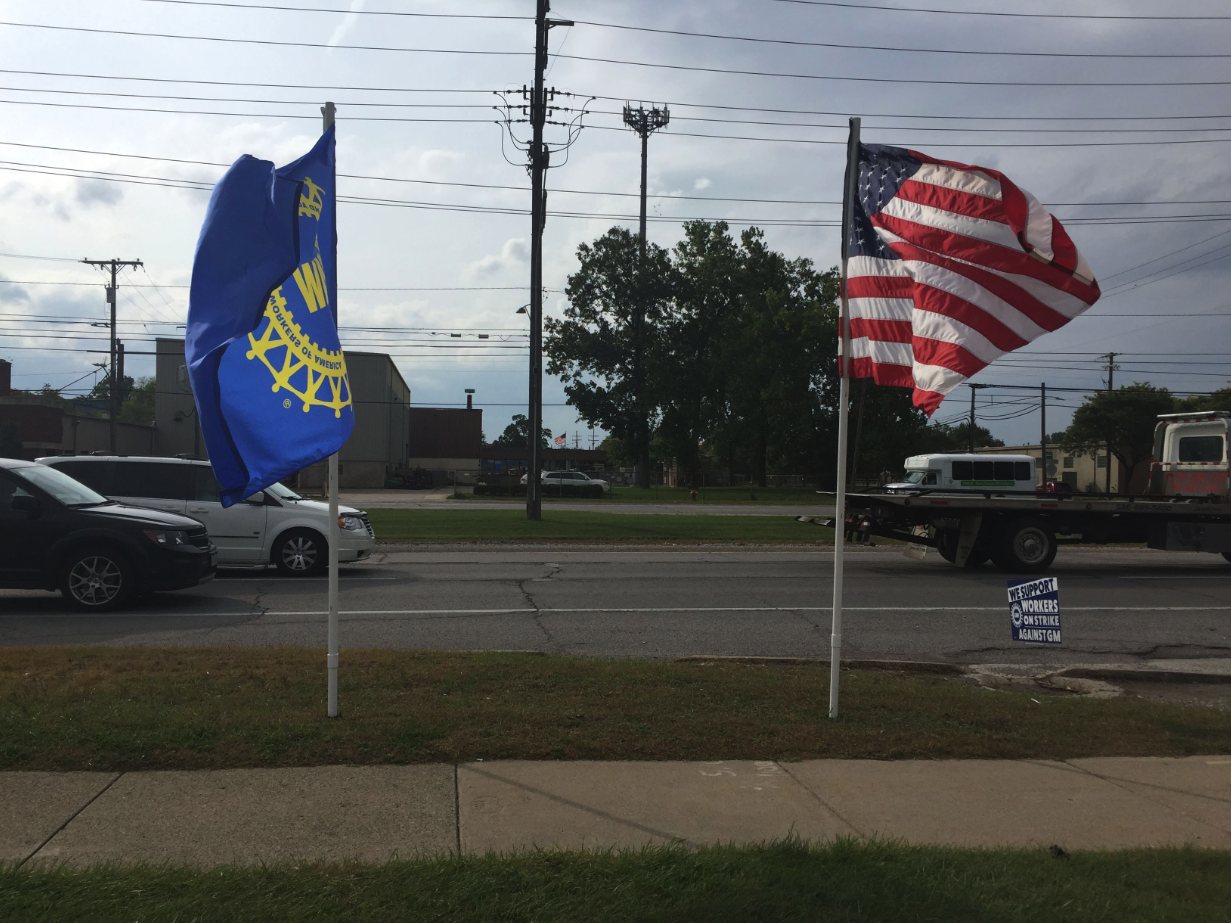“One Member, One Vote” Not A Panacea for the United Auto Workers, Says Wayne State Business Professor
Wayne State Business Professor Marick Masters says an effort to democratize the union is a step in the right direction to move on from scandals and corruption.

Years of scandal and several high-profile arrests have left the United Auto Workers union looking for answers — and potentially a new way to elect leadership.
Nearly 1 million current and retired UAW members are now voting on whether they would like to implement a “one member, one vote” democratic system.
Wayne State University School of Business Professor Marick Masters says approving the referendum would be a good step to moving on from the union’s scandal-ridden past.
“I would simply say that while it’s a step in the right direction, as far as opening up, the UAW is concerned,” Masters says. “It’s not a panacea to the UAW’s problems, which revolved around the scandal. Nor is it a guarantee that the union will operate democratically as a whole.”
Listen: Wayne State University Professor Marick Masters on how the referendum would be a good step forward for the UAW.
If the measure fails, Masters says worker’s confidence in the UAW may be set back. “But it’s important to remember that direct elections are only one aspect of the democratic operation of the union,” Masters says. He adds there are other important aspects to consider, such as whether leaders represent the will of the members; if there is allowance for opposition to form and for there to be contested elections; and whether there is an open and inclusive environment for rank and file workers and leaders to truly debate and dissent.
With nearly 4.3 million people quitting their jobs in August, employers are having a hard time attracting workers. The pandemic has given people the opportunity to take a look at their work situation and assess whether available jobs are worthwhile.
“It’s important to bear in mind that a lot of people have greater opportunity as a result of changes in the economy,” he says. “That would include the benefits structure, with the unemployment compensation that’s been provided over the past 18 months or so to workers to essentially not have to work. Some people have used this as an opportunity to disengage from the workforce, and to reevaluate their life and what they want to do with their life because of the pandemic.”
“While it’s a step in the right direction … it’s not a panacea to the UAW’s problems, which revolved around the scandal. Nor is it a guarantee that the union will operate democratically as a whole.” –Marick Masters, Wayne State University, on the UAW’s referendum
Given that reevaluation by the masses, there’s also been a recent rise in labor actions across the country, between what’s happening with the TV and movie industry, Kellogg’s and Frito-Lay. Masters says a lot of the strike activity is happening now because it coincides with contracts with deadlines. When compared to strikes and work stoppages in the 1940s through the 1960s, there are a lot fewer today, he says.
“You have seen the work stoppages shrink to a paltry number — especially those among large bargaining units or more in the past 20 years, where there really only been a handful of such strikes in a given year. And while we read a lot about strikes, now, in the sense that you have Kellogg, Nabisco and Deere and other major companies that have workers on the picket line, it’s still a very small number of strikes, a very small number of workers relative to the overall size of the workforce.”
Masters adds strikes are more likely to occur when employers are facing labor shortages, and it’s more costly to replace workers who go on strike. “And they have to deal with the fact that they don’t want to lose customer loyalty in these challenging economic times, so they want to hold on to as much of their business as possible. So I think that makes an opportunity for labor in given situations to exercise this power, which has been reluctant to in the past. But I wouldn’t see this representing a sea change or any kind of redirection in the status of labor and society as a whole.”
Trusted, accurate, up-to-date.
WDET strives to make our journalism accessible to everyone. As a public media institution, we maintain our journalistic integrity through independent support from readers like you. If you value WDET as your source of news, music and conversation, please make a gift today.

